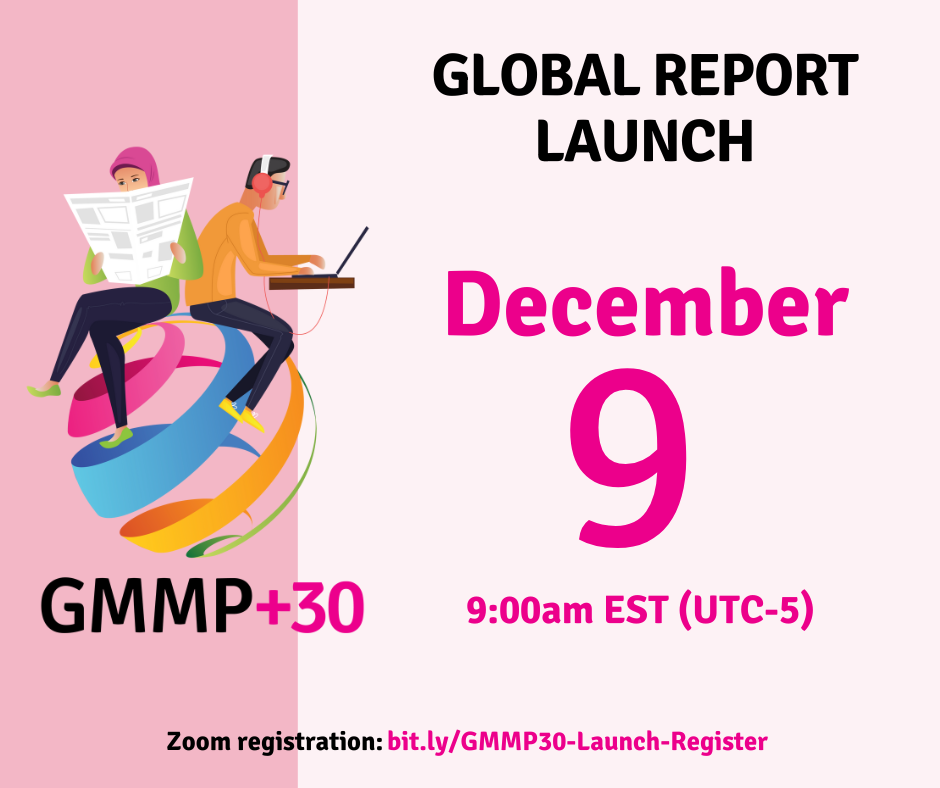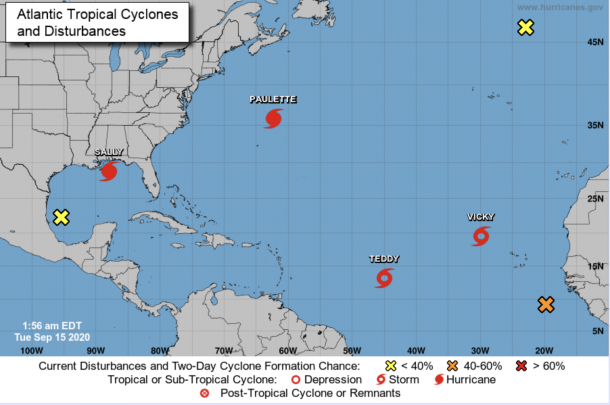The 2020 Atlantic hurricane season is so active that it has nearly exhausted the regular list of storm names. If this happens, the Greek alphabet will be used for only the second time on record.
On 14 September, the US National Hurricane Center issued advisories on five tropical cyclones over the Atlantic basin. This ties the record for the most number of tropical cyclones in that basin at one time, last set in September 1971.
Hurricane Paulette, which on 14 September had its entire eye over Bermuda.
Tropical storm Rene (now dissipated);
Hurricane Sally, centred over the north-central Gulf of Mexico, is expected to landfall as a category 2 hurricane on Wednesday with dangerous and life-threatening storm surge, hurricane-force winds and flash flooding likely along portions of the Northern Gulf Coast.
Tropical Storm Teddy, over the east central tropical Atlantic and is expected to become a hurricane on Tuesday;
Tropical Storm Vicky.
An area of low pressure has formed near Cabo Verde and this has a 50% chance of tropical cyclone formation in the next 48 hours, according to the National Hurricane Center.

Names
WMO maintains rotating lists of names in alphabetical order for tropical cyclones. Male and female names are alternated, and the lists are used every six years. If a hurricane is particularly devastating or deadly, its name will be retired and a new one selected.
As predicted by the US National Oceanic and Atmospheric Administration, the 2020 season has seen an exceptionally high number of named storms, reaching the letter V (Vicky) as of Monday 14 September. Vicky is the earliest 20th Atlantic named storm on record. The old record was set by Vince on October 9, 2005. The season lasts until 30 November.
Only the name Wilfred remains.
The hurricane name lists include only 21 letters out of 26, because it is not easy to find 6 appropriate names (for the 6 rotating lists) starting with Q, U, X, Y and Z. In the interests of safety, names must be easily recognizable. In addition, they have to reflect a balance between French, Spanish and English names due to the geographical coverage of the storms throughout the Atlantic and Caribbean, and respect societal sensitivities.
The use of the Greek alphabet (Alpha, Beta, Gamma, Delta, Epsilon, Zeta, Eta, Theta, etc) has only happened once before in 2005, when six names from the Greek Alphabet were used. This was a record-breaking year with devastating hurricanes including Katrina, Rita and Wilma, whose names were all retired.
The name of a tropical cyclone may be retired or withdrawn from the active list at the request of any Member State if that tropical cyclone acquires special notoriety because of the human casualties and damage incurred. It is through consensus opinion of the members (or the majority, if required) during the session of the WMO Regional Association IV Hurricane Committee immediately following that season, that the name would be withdrawn from the active list.
 The Hurricane Committee annual session in 2006 discussed the use of the Greek alphabet for hurricane naming, and whether a Greek Alphabet name should be retired as done for a regular name when it meets the criteria for retirement.
The Hurricane Committee annual session in 2006 discussed the use of the Greek alphabet for hurricane naming, and whether a Greek Alphabet name should be retired as done for a regular name when it meets the criteria for retirement.
The Committee felt that the use of the Greek Alphabet was not expected to be frequent enough to warrant any change in the existing naming procedure for the foreseeable future and therefore decided that the naming system would remain unchanged and that the Greek alphabet would continue to be used.
In this connection, the Committee also agreed that it was not practical to “retire into hurricane history” a letter in the Greek Alphabet. It therefore decided that if a significant storm designated by a letter of the Greek Alphabet, in either the Atlantic or eastern North Pacific Basin, was considered worthy of being “retired”, it would be included in the list of retired names with the year of occurrence and other details, but that the particular letter in the Greek Alphabet would continue to be available for use in the future”.






